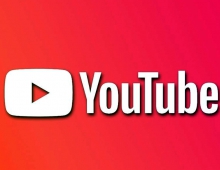
YouTube Not to Disclose User's IPs
Viacom won't be told the identities of individuals who watch video clips on the popular video-sharing site YouTube.
Viacom and other copyright holders have agreed to let YouTube mask user IDs
and Internet addresses when Google's online video site hands over
viewership records in a $1 billion lawsuit accusing YouTube of enabling
copyright infringement. A federal judge ordered the database produced in a
July 1 ruling widely criticized by privacy activists.
"We remain committed to protecting your privacy and we'll continue to fight for your right to share and broadcast your work on YouTube," the company said in a blog posting late Monday disclosing the agreement.
Viacom is seeking at least $1 billion in damages from Google, saying YouTube built its business by infringing copyrights on Viacom show.
The YouTube database includes information on when each video gets played. Attached to each entry is each viewer's unique login ID and the IP address for that viewer's computer.
But lawyers for Viacom and the other plaintiffs signed an agreement with YouTube on Monday saying they would accept measures to help YouTube preserve the anonymity of the records. Under the agreement, YouTube can swap the user logins and IP addresses with other, presumably anonymous signifiers; YouTube has a week to propose its method.
The YouTube data would not be publicly released, but disclosed only to the plaintiffs, likely under a court-sanctioned confidentiality order. Viacom also has pledged not to use the data to identify individual users to sue.
"We remain committed to protecting your privacy and we'll continue to fight for your right to share and broadcast your work on YouTube," the company said in a blog posting late Monday disclosing the agreement.
Viacom is seeking at least $1 billion in damages from Google, saying YouTube built its business by infringing copyrights on Viacom show.
The YouTube database includes information on when each video gets played. Attached to each entry is each viewer's unique login ID and the IP address for that viewer's computer.
But lawyers for Viacom and the other plaintiffs signed an agreement with YouTube on Monday saying they would accept measures to help YouTube preserve the anonymity of the records. Under the agreement, YouTube can swap the user logins and IP addresses with other, presumably anonymous signifiers; YouTube has a week to propose its method.
The YouTube data would not be publicly released, but disclosed only to the plaintiffs, likely under a court-sanctioned confidentiality order. Viacom also has pledged not to use the data to identify individual users to sue.





















